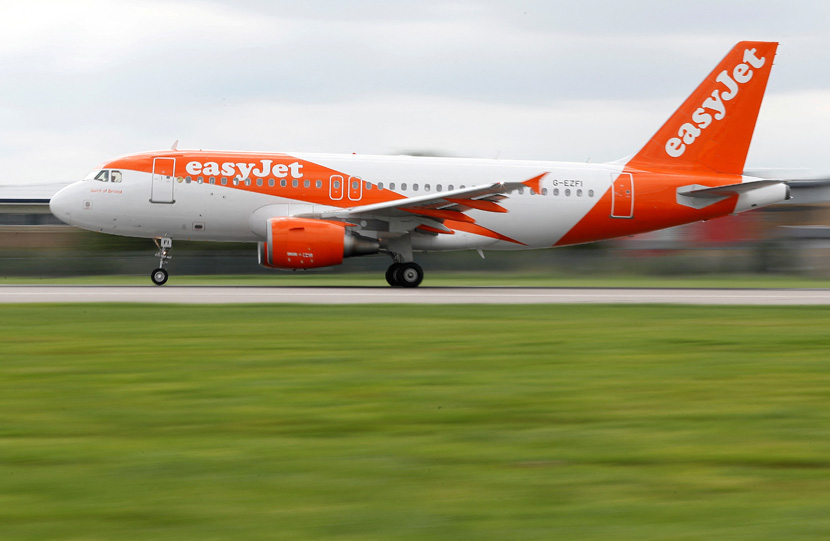Wednesday, July 10, 2024
Reading Time: 4 minutes

EasyJet connects Paris Olympics with a significant number of flights across Europe, operating from major hubs such as London Gatwick, London Luton, Manchester, Edinburgh, and others. With numerous direct flights and strategic connections, EasyJet offers an extensive network that ensures convenient travel options for both business and leisure travelers. Additionally, EasyJet collaborates with multiple partner airlines through its “Worldwide by easyJet” program, enhancing connectivity and providing seamless travel experiences to Charles de Gaulle Airport. This partnership network includes renowned airlines like Emirates, Virgin Atlantic, Singapore Airlines, and more, allowing passengers to book flights across different carriers on a single itinerary. The increased frequency of flights to Paris, combined with the expansive network of partner airlines, significantly enhances the accessibility and convenience for travelers. Business travelers benefit from the efficiency and time savings provided by direct routes and optimized connections, while leisure travelers enjoy greater flexibility and a wider array of destination choices. This robust connectivity not only supports the tourism industry in Paris by attracting more visitors but also bolsters business opportunities, fostering stronger economic ties and promoting international trade. EasyJet’s commitment to expanding its flight network and partnering with leading airlines underscores its role as a key player in enhancing global mobility and contributing to the growth of business and leisure travel to and from Paris.
Here is the list of airports from where EasyJet flies to Paris:
| Airport | Direct Flight | Layovers |
|---|---|---|
| London Gatwick (LGW) | Yes | No |
| London Luton (LTN) | Yes | No |
| London Southend (SEN) | Yes | No |
| Manchester (MAN) | Yes | No |
| Edinburgh (EDI) | Yes | No |
| Liverpool (LPL) | Yes | No |
| Nice (NCE) | Yes | No |
| Lyon (LYS) | Yes | No |
| Toulouse (TLS) | Yes | No |
| Barcelona (BCN) | Yes | No |
| Madrid (MAD) | Yes | No |
| Milan Malpensa (MXP) | Yes | No |
| Venice (VCE) | Yes | No |
| Naples (NAP) | Yes | No |
| Berlin Brandenburg (BER) | Yes | No |
| Munich (MUC) | Yes | No |
| Hamburg (HAM) | Yes | No |
| Geneva (GVA) | Yes | No |
| Amsterdam (AMS) | Yes | No |
| Lisbon (LIS) | Yes | No |
| Porto (OPO) | Yes | No |
| Brussels (BRU) | Yes | No |
| Athens (ATH) | Yes | No |
EasyJet has established a network of partner airlines through its “Worldwide by easyJet” program. This program allows easyJet passengers to connect with flights operated by partner airlines, expanding the range of destinations available. The key partner airlines in this program include:
- Emirates
- Virgin Atlantic
- Singapore Airlines
- Scoot
- Air Transat
- Norwegian
- WestJet
- Corsair
- Neos
- Aurigny
- Thomas Cook
- La Compagnie
These partnerships enable easyJet to offer more extensive travel options, allowing passengers to book connecting flights with these airlines through easyJet’s booking platform.

EasyJet is offering new flight deals to Paris for the 2024 Olympics from various cities across several countries. Key departure points include:
United Kingdom:
- London Gatwick (LGW)
- London Luton (LTN)
- London Southend (SEN)
- Bristol (BRS)
- Manchester (MAN)
- Edinburgh (EDI)
- Glasgow (GLA)
- Belfast (BFS)
- Liverpool (LPL)
- Birmingham (BHX)
Spain:
- Barcelona (BCN)
- Madrid (MAD)
- Malaga (AGP)
- Valencia (VLC)
- Alicante (ALC)
France:
- Nice (NCE)
- Lyon (LYS)
- Bordeaux (BOD)
Germany:
- Berlin Brandenburg (BER)
- Munich (MUC)
- Hamburg (HAM)
Italy:
- Milan Malpensa (MXP)
- Venice (VCE)
- Naples (NAP)
- Rome Fiumicino (FCO)
Netherlands:
Switzerland:
- Geneva (GVA)
- Basel (BSL)
- Zurich (ZRH)
Greece:
- Athens (ATH)
- Thessaloniki (SKG)
- Heraklion (HER)
Turkey:
- Istanbul (IST)
- Izmir (ADB)
- Antalya (AYT)
An EasyJet passenger plane en route to Tenerife was forced to make an emergency landing at Gatwick Airport following a hydraulic failure. This morning, Flight U28033, carrying approximately 244 holidaymakers, encountered a critical issue while traveling over western France. The aircraft, an Airbus A321neo, sent out the emergency code 7700 at about 8:40 AM, indicating a serious in-flight problem. The hydraulic failure necessitated an immediate return to Gatwick, the departure airport. Despite the urgency, the flight crew managed to handle the situation effectively, ensuring the aircraft landed safely without any operational impact on Gatwick Airport. A spokeswoman for the airport confirmed the safe landing and reassured that no other airport operations were affected by the emergency procedure. Hydraulic systems are crucial for the control and operation of an aircraft, affecting everything from landing gear to flight controls. A failure in such a system can lead to significant operational challenges, making the crew’s handling of the situation commendable. Passengers on board experienced the anxiety and inconvenience of an emergency landing but were ultimately unharmed. EasyJet’s protocols for such emergencies were evidently effective, as the aircraft was able to land without incident. The airline’s commitment to safety and swift response to in-flight issues ensured passenger safety remained the top priority. This incident underscores the importance of rigorous safety protocols and the readiness of flight crews to manage emergencies. For travelers, it is a reminder of the unpredictable nature of air travel and the critical role of airline safety measures. This emergency landing follows a similar incident involving a Delta Airlines flight earlier this week. A Delta flight from Detroit to Amsterdam had to make an emergency landing at JFK Airport due to a contamination incident involving onboard food. The aircraft, carrying 277 passengers, returned to New York after passengers were served contaminated food, highlighting another facet of the complexities and challenges in maintaining passenger safety during flights. Incidents like these, while handled efficiently, can have broader implications for travel and tourism. Emergency landings and in-flight issues often cause delays and cancellations, affecting travel plans for numerous passengers. In this case, holidaymakers heading to Tenerife faced unexpected disruptions, potentially impacting their travel itineraries and overall travel experience. Such events also draw attention to the robustness of airline safety protocols and the importance of continuous improvement in emergency response strategies. For airlines, maintaining passenger trust and confidence is paramount, necessitating transparency and efficiency in handling such situations.
In response to such incidents, airlines often review and enhance their safety measures to prevent future occurrences. This includes rigorous maintenance checks, enhanced training for flight crews, and thorough investigation of the incident to understand and mitigate risks. The aviation industry, known for its high safety standards, continuously evolves to ensure the utmost safety and comfort for its passengers. The emergency landing of EasyJet’s Flight U28033 at Gatwick Airport underscores the critical importance of effective safety protocols and the preparedness of flight crews to handle in-flight emergencies. While such incidents can be alarming, the successful management of the hydraulic failure highlights the robustness of the aviation industry’s safety measures. For travelers, it is a reminder of the importance of safety in air travel and the role of airlines in ensuring a secure and efficient travel experience.








